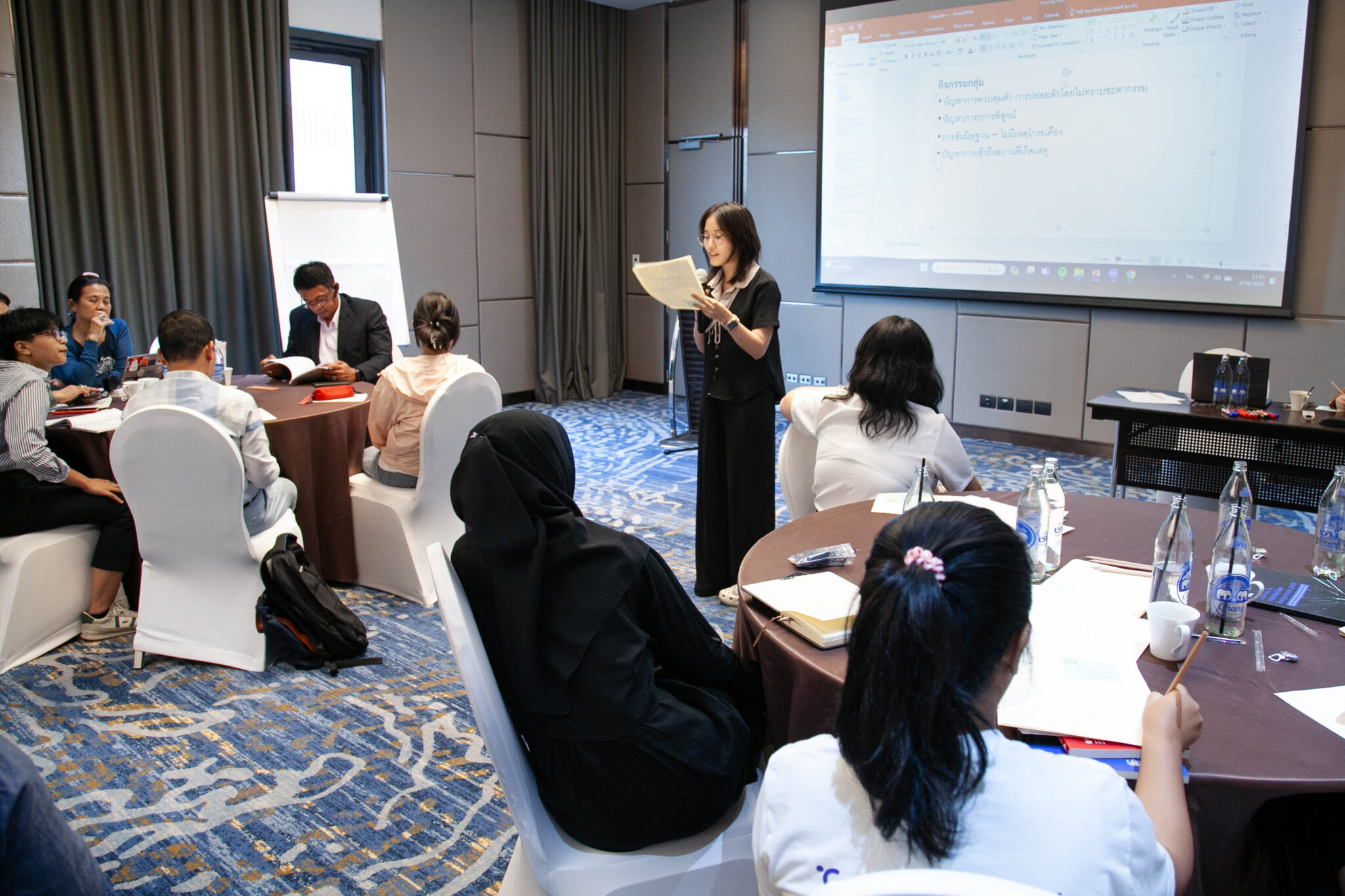Despite the adoption of landmark legislation addressing the crime of enforced disappearance in 2022, authorities have been slow to act in ensuring effective investigations and prosecutions in suspected instances of this human rights atrocity.
At workshop held on 27-28 April 2024 by the International Commission of Jurists (ICJ) and the Cross-Cultural Foundation, some 30 Thai lawyers, academics, and members of civil society organizations addressed a multitude of ongoing challenges in litigating cases involving suspected enforced disappearances within Thai justice system.
“We remain concerned about the slow pace of efforts to prosecute allegations of enforced disappearances in Thailand, which appear to continue the historical ineffectiveness in the investigation and adjudication of cases, leading to unsuccessful outcomes,” said Melissa Upreti, ICJ’s Asia-Pacific Regional Director, during the opening remarks.
“Addressing the failures of the past and pursuing longstanding cases is crucial to ensuring that justice is served in such cases where, by their very nature, the violations are ongoing” added Upreti.
Only two cases of enforced disappearance have reached the Thai courts. These concerned the disappearance of of prominent Muslim lawyer Somchai Neelapaijit and Karen activist Pholachi ‘Billy’ Rakchongcharoen and the cases were not satisfactorily resolved, due in part to the unwillingness among justice sector actors to handle such crimes.
At the time, there was no specific legal framework and a lack of expertise on the crime of enforced disappearance.
Challenges also arose regarding the admissibility of evidence, including telecommunications, as well as forensic evidence including biological evidence and DNA evidence, and the failure to identify the perpetrators in cases where the victims’ bodies or remains could not be located.
At the workshop, participants evaluated some factors that impeded the pursuit of justice in such cases, including active efforts by State officials to destroy direct evidence of the facts to evade accountability. There were obstacles in accessing evidence solely in the hands of the State and the use of circumstantial evidence to demonstrate the concurrence of any of the elements of enforced disappearance, particularly in situations where investigators were unable to locate and/or identify a body or remains.
“Under international human rights law, Thailand has a duty to investigate a potentially unlawful death promptly, effectively, and thoroughly, with independence, impartiality, and transparency. Even in situations where a body or remains cannot be located, investigators must continue to gather other direct and circumstantial evidence which may suffice for identifying the perpetrator(s),” said Sanhawan Srisod, ICJ’s Associate International Legal Adviser during her presentation.
Speakers at the workshop included:
- Gabriella Citroni, Senior Legal Advisor at TRIAL International, Professor at the University of Milano-Bicocca, and Vice-Chair of the UN Working Group on Enforced or Involuntary Disappearances
- Juan Pablo Albán Alencastro, Member and Rapporteur, Committee on Enforced Disappearances, and Law Professor at Universidad San Francisco de Quito – Ecuador
- Pornpen Khongkachonkiet, Director, Cross Cultural Foundation (CrCF)
- Sanhawan Srisod, ICJ’s Associate International Legal Adviser
Background
Participants drew on international and comparative jurisprudence and standards, following a continuation of a dialogue held in November 2023, which considered best practices from Latin America.
Thailand has signed, but not yet ratified the UN Convention on the Protection of all Persons from Enforced Disappearances, despite having committed to doing so.
International human rights standards, including those set out in the Report of the Working Group on Enforced or Involuntary Disappearances on standards and public policies for an effective investigation of enforced disappearances, the Minnesota Protocol on the Investigation of Potentially Unlawful Death (2016), and the ICJ Practitioners’ Guide no. 14 on Investigation and Prosecution of Potentially Unlawful Death, were presented.
The Minnesota Protocol on the Investigation of Potentially Unlawful Death (2016) is an updated version of the original UN Manual on the Effective Prevention of Extra-legal, Arbitrary, and Summary Executions of 1991, which, through widespread usage, became known as the Minnesota Protocol.
Thailand’s Act on Prevention and Suppression of Torture and Enforced Disappearance became effective in February 2023. It criminalizes the act of torture, ill-treatment and enforced disappearance, targeting not only those who commit, conspire, or participate, but also their supervisors. The majority of cases involving suspected torture, ill-treatment, and enforced disappearances are still in the investigation phase, and not yet moved into the adjudication phase. Limited information about its progress has been made available to the public.
Further reading
Ten Years Without Truth: Somchai Neelapaijit and Enforced Disappearances in Thailand
The investigation and prosecution of potentially unlawful death: ICJ Practitioners’ Guide no. 14




